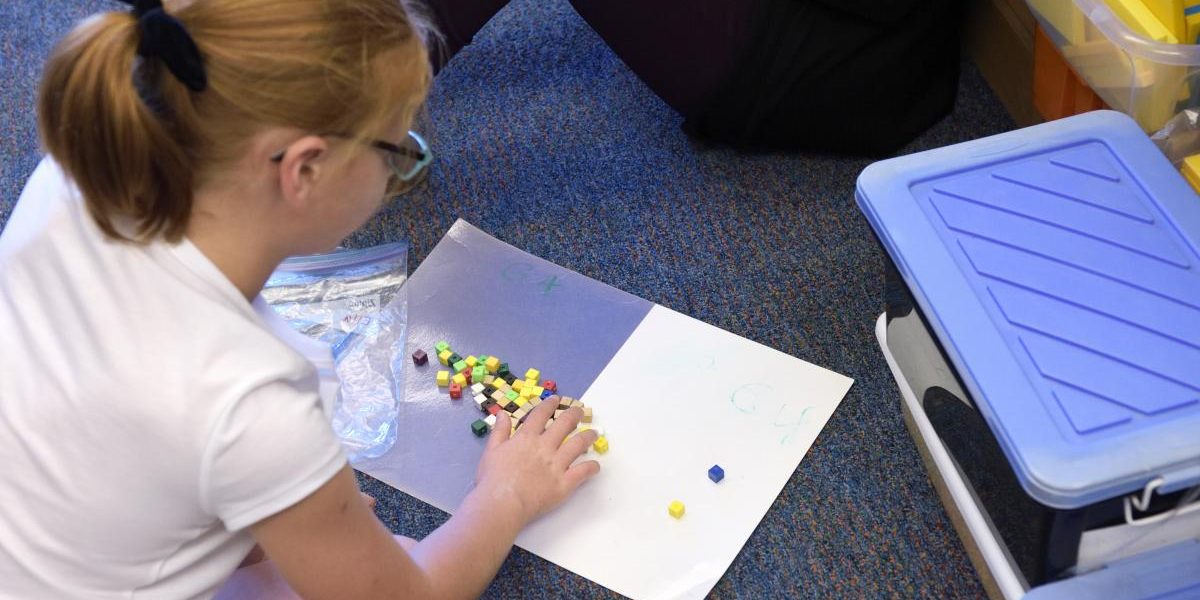
The Fruits of Our Labor: How Staying the Course Can Support EF Skill Development
October 8, 2019
Keeping a Positive Attitude in the Midst of Challenges
October 22, 2019
Math may not be marvelous for you or your child, but research indicates that your attitude toward math is really important.
A Stanford study’s lead author and postdoctoral scholar said, ‘Based on our data, the unique contributions of positive attitude to math achievement is as large as the contribution from IQ’ (Chen, PhD). So, as adults in a child’s life, it is our job to change our attitude first so that the child observes an adult with a positive attitude about math. As you think about your attitude, here are five tips for making math fun as you spend time with your child:
- Insert math into conversations with your child. Talk about how to divide objects, how much money a single cookie costs versus an entire package, the size of a room, the measurement of how much grass seed is needed, etc. Ask your child everyday math questions - how long will something take, what time you need to leave home to be somewhere on time, how much is admission to a sporting event, or even how much to buy at the grocery so you don’t have to go again until the next weekend.
- Have your child use and handle materials or objects. Have your child use measuring cups to add the ingredients to the bowl. Have them hold the end of the measuring tape while measuring; talk about the measurement and what the next steps might be. When going to a store, put the child in charge of paying with cash and checking the change. Building objects, organizing spaces, and playing board games all contribute to strengthening a child’s visual-spatial concepts. There are a lot of math concepts to discuss with objects – quantity, calculations, predictions.
- Discuss time and the calendar. Use your own busy schedule to converse about the concepts of time. Decide when to leave the house, how long you are staying there, and predict what time you’ll arrive home (and discuss whether that allows enough time to study for tomorrow’s test!). Show how you document future events, or have a digital family calendar where all members can contribute. Teaching your child to check a calendar before making a commitment can be a worthy activity and one they’ll use time and time again.

- Look for books about math. There are so many books about math. Do a search on the Internet or at the library to find your favorites. Some of mine that are related to math are; When: The Scientific Secrets of Perfect Timing by Daniel H. Pink, When You Give a Mouse a Cookie by Laura Numeroff, Math Curse by Jon Scieszka and Lane Smith. One recent recommendation by a middle school math teacher was Kiss My Math: Showing Pre-Algebra Who’s Boss by Danica McKellar.
- Try technology. Students enjoy using technology – why not use of some of that time enriching their math knowledge? DreamBox is an online K-8 math program designed to complement classroom instruction. Prodigy is another comprehensive math program that can be used alongside a curriculum. Mathville is yet another program to check out. Why not play these games together with your child or at least discuss their progress with the programs? The tie to technology is endless and many programs have great reviews by fellow students of math.
Blogger and Director of Learning Programs, Carmen Mendoza, MEd, shares her expertise in understanding students with learning disabilities. If you have questions, please contact Carmen at .



